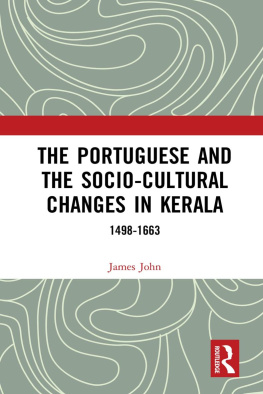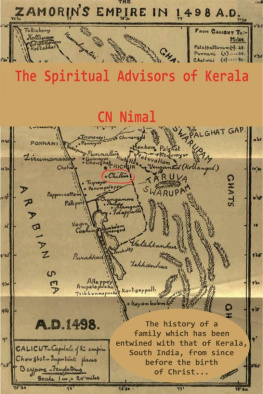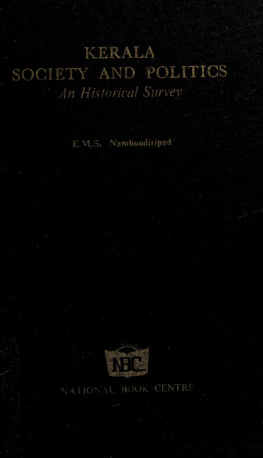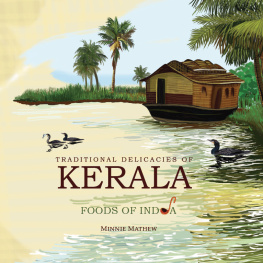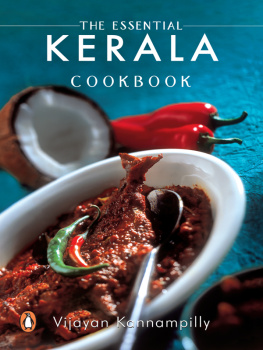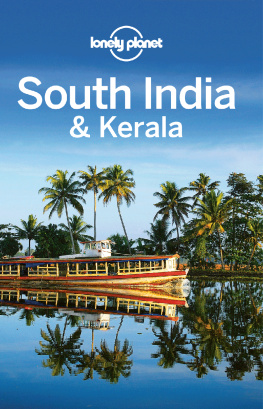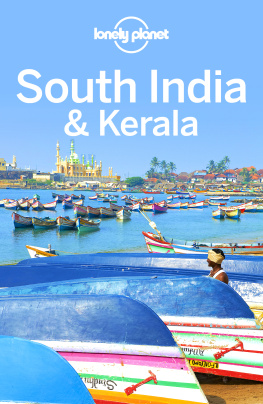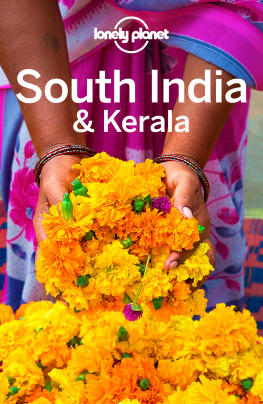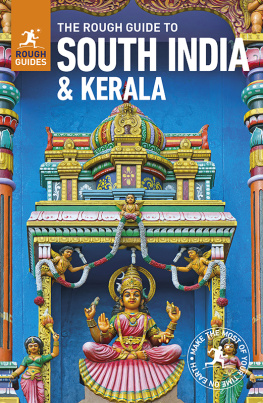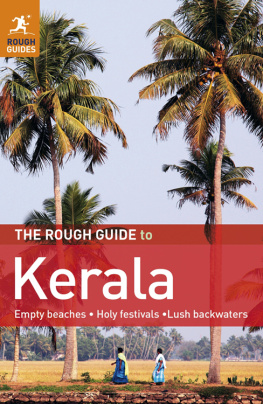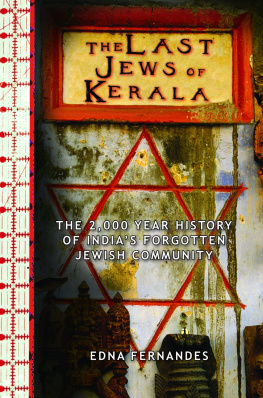THE PORTUGUESE AND THE SOCIO-CULTURAL CHANGES IN KERALA
The momentous interaction between Portugal and Kerala commenced with the historic voyage of Vasco da Gama in 1498. It had lasting impact on the society of Kerala. The voyage, with the express purpose of searching for `Christians and Spices, left longlasting imprint on the life of the people of Kerala.
Though the Portuguese did not have political dominion in Kerala, the political influence they gained in Kerala precipitated a lot of socio-cultural changes. The intensity and degree of these changes were commensurate with the tenor of the Portuguese networking with the diverse socio-cultural traits in Kerala. Those sections of the Kerala society that gained a higher extent of interconnectedness with the Portuguese manifested a higher degree of socio-cultural transition. One of the most significant means for socio-cultural change that the Portuguese employed in Kerala was ecclesiastical legislation. This cultural interface between Portugal and Kerala resulted in multiple fissions and fusions in the society of Kerala.
This book delves deep into the multifarious interaction between the two communities and the consequent socio-cultural changes that Kerala witnessed during 1498-1663, the period when Portuguese influence was at its acme.
James John hails from the idyllic village of Elanji in Kerala and has a Ph.D in History from Pondicherry Central University. Presently he is Principal, St. Thomas College, Pala, and a Research Guide at M.G. University, Kottayam, Kerala.
First published 2020
James John, 2020
All rights reserved. No part of this publications may be
reproduced or transmitted, in any form or by any means,
without prior permission of the author and the publisher
This edition is for sale in India, Sri Lanka, Nepal,
Bangladesh, Afghanistan, Pakistan and Bhutan
ISBN 978-93-5098-003-3
Published by
Ajay Jain for
Manohar Publishers & Distributors
4753/23 Ansari Road, Daryaganj
New Delhi 110002
Typeset by
Ravi Shanker
Delhi 110095
Printed at
Replika Press Pvt. Ltd.
Contents
List of Illustrations
Foreword
Acknowledgements
Abbreviations
I. Introduction
II. Portuguese Society and Culture at the Close of the Fifteenth Century
III. Malabar Society at the Arrival of the Portuguese
IV. The Interaction between the Portuguese and Kerala Society: 15001567
V. Interaction between the Portuguese and Malabar Society: 15671663
VI. Conclusion
Documentary Appendix
Bibliography
Index
Map of Portugal in the fifteenth and sixteenth centuries
The photo of the altar of the church in Ramapuram (c. 1450)
Map of Malabar in the sixteenth and seventeenth centuries
India, in general and south India in particular, for the first time, came into contact with Europe with the opening of the direct sea-route connecting coastal India with the Atlantic regions towards the close of the fifteenth century. The dynamics of the monsoons compelled the Portuguese to establish factories, fortresses and settlements in various parts of coastal India. Besides, in course of time, the Portuguese missionaries took efficient steps to convert the local people to Christianity embedded in European culture, besides making strenuous efforts to make the existing Catholics conform themselves with the Western religious practices. The political domination in places under the Portuguese jurisdiction and the ecclesiastical authority claimed by them under the Royal Padroado rights provided them with opportunities to enact rules and regulations binding the members of Indian society to follow European customs and manners. A milieu of this nature opened up the avenue for cultural interactions between the Portuguese and the local society. It must be said that the `give and take process found in such interactions has not been very strong in the case of the Portuguese interactions with the local society. As a result, a lot of changes in the day-to-day life of the local people were brought about thanks to the Portuguese contacts.
Some of the social practices in vogue among the local Catholics were proscribed by legislations promulgated by the Portuguese through the provincial councils of Goa and specifically through the decrees of the Synod of Diamper. A study of these attempts will offer an opportunity to learn the indigenous practices that were found among the local Catholics before the arrival of the Portuguese on the Malabar Coast. The author has made an attempt to bring to light the nature of society in Kerala before the Portuguese came to India and to highlight the process of changes in the light of the Portuguese legislations.
The authors familiarity with the Portuguese language enabled him to consult the original and contemporary sources in Portuguese, especially the decrees of the provincial Councils of Goa and those of the Diamper Synod. Most of the synodal decrees were implemented among the local Catholics on account of the Portuguese authority in the ecclesiastical life. The Catholics in Malabar were kept away from the local traditions being in vogue for centuries together. Thus, the local Catholics began to preserve an identity of their own in view of the insistence of the Portuguese authorities in the Church from the commencement of the seventeenth century.
The present study will help students of history identify the changes brought about through the contacts with the Portuguese and realize that the Kerala culture is not monolithic, but a cultural mosaic in which various aspects of different cultures have been amalgamated. It is hoped that the author will bring out further studies on the history of India in general and of Kerala in particular based on the Portuguese documents.
K.S. MATHEW
The present work is the result of a few close years of historical research. There are a lot of people who have extended their helping hands in the preparation and publication of this work. I make use of this occasion to express my heartfelt thanks to H.E. Mar Joseph Kallarangatt, the Bishop of Palai, who has been inspiring, and supporting me in all my academic and spiritual endeavours. It was H.E. Mar Joseph Pallikaparampil, Bishop Emeritus of Palai who sent me for higher studies in History. I owe him a lot. H.E. Mar Jacob Muriken, the Auxiliary Bishop of Palai and Manager of St. Thomas College, Palai deserves special mention. I thank him for his constant support.
It was Prof. Dr. K.S. Mathew, former Professor of History at Pondicherry University and my Research Supervisor who initiated me into Indo-Portuguese history, encouraged and supported me at every stage of my research, opened his vast treasury of knowledge through discussions and suggestions and allowed me to make use of the invaluable depository of his personal collection of sources. Besides he has blessed me with a generous and scholarly Foreword for this book. I would like to express my heartfelt thanks to my Guru.
I am indebted to the libraries and various departments, history and otherwise, of the University of Baroda, Central University of Pondicherry, Universit de Nantes, France, and Universidade de Lisboa, Portugal, for equipping me intellectually for the preparation of this work. The guidance and help extended by Prof. Jacques Weber of the Department de Histoire, Universit de Nantes is also acknowledged here. I thank him most sincerely for the care, guidance and help he rendered to me during my researches in in France.

